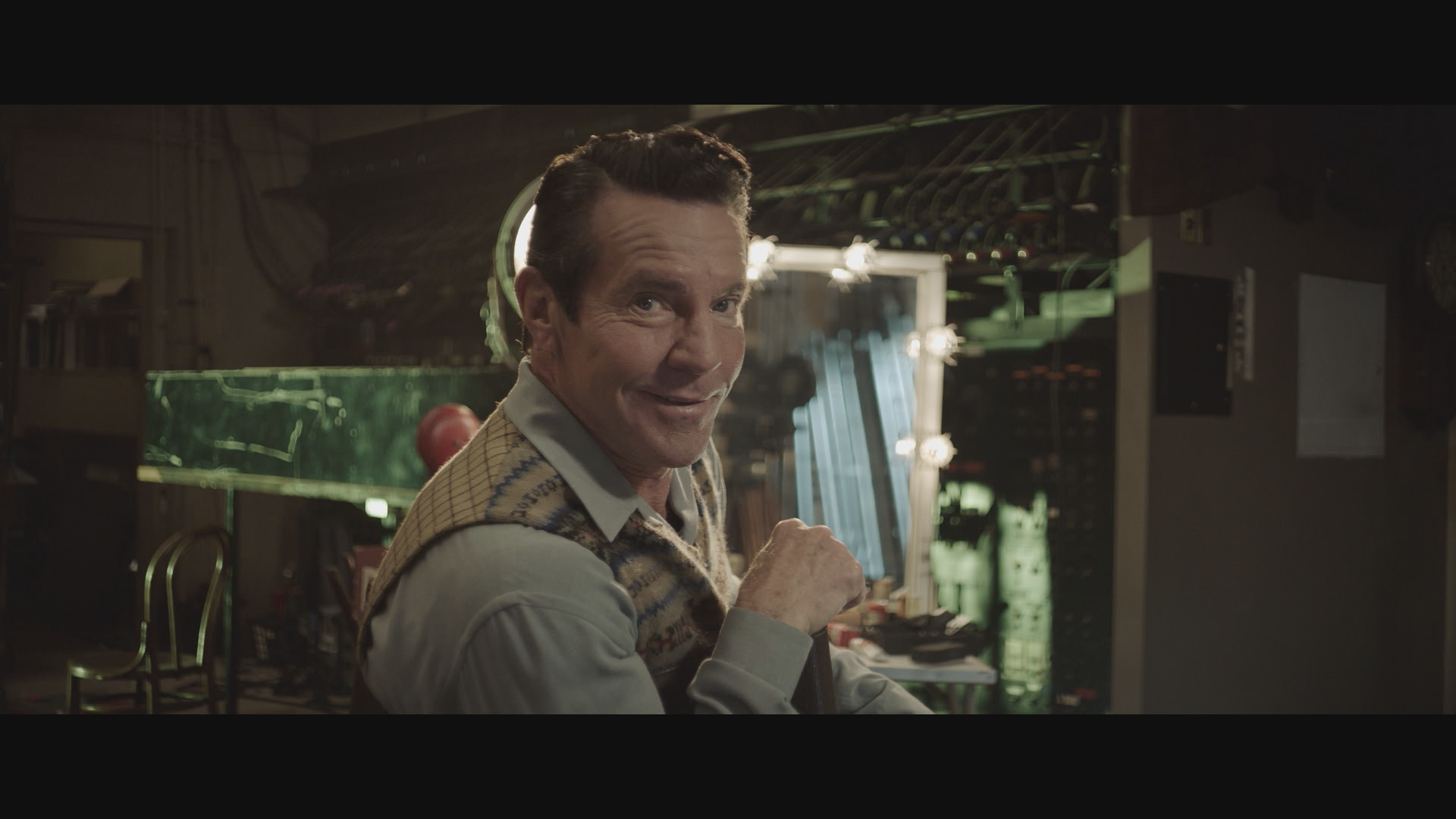Dennis Quaid is 69 years old. But in an upcoming movie, he’ll be playing Ronald Reagan in his 30s, and in his 80s, and various ages in between.
The movie, dubbed Reagan and headed for theaters next year, is using digital technology and good, old-fashioned makeup to make the transition, but visual effects supervisor Scott Coulter stopped short of artificial intelligence, the bugaboo of Hollywood that has frightened actors and writers to the point of striking.
At one point, the filmmakers told Newsweek, they considered an entirely AI-generated entity to play the lead character, before they fell in love with the idea of casting Quaid, whom director Sean McNamara called “one of the greatest actors of our time.”
Plus, marketing and publicity was a consideration, he said.
“There’s no substitute for an actor like Dennis going on various shows to talk about a movie like ours,” McNamara said. “It’s that human connection.”
Such sentiments are likely music to the ears of actors, who continue a strike that began July 14 in part over the ability of technologies associated with AI to digitally recreate historical characters and forego the need for actors to play them.
Coulter told Newsweek that he didn’t forego AI to alter the ages of his actors because anyone on the project objected to its use, but because the technology “just wasn’t up to our standards.”
Coulter also changed the age of the other star of the film, Jon Voight, multiple times, given the Oscar-winning actor is 84 but plays a Russian agent who is in his 40s when he begins to collect intel on the future U.S. president due to Reagan’s anti-Communist sentiments that were evident when he was head of the Screen Actors Guild in 1947.
The VFX supervisor said he used “hand tracking of digital skin patches on a frame-by-frame basis” for more than 300 shots involving Quaid and Voight, and he aged and de-aged more than just their faces.
He used makeup as much as possible, then included prosthetics, hairline augmentations, neck pulls and other techniques that have been available for decades, then digital technology was used for the finishing touches.
The most challenging work was making Quaid look like Reagan as a young actor in the 1930s.
“We had to take 40 years off of Dennis, and that requires painstaking, almost surgical retouching of his face, frame by frame,” Coulter said.
He also said that Quaid and Voight are in such great shape physically and hide their ages so well that only work on their necks was required for a number of shots.
Reagan tells his story beginning in his boyhood, so a child actor is used, and David Henrie, best known as the brother in the hit Disney Channel show Wizards of Waverly Place, plays Reagan in his early 20s, when he played college football, was a lifeguard and a radio announcer.
Reagan, a narrative film as opposed to a documentary, is based on two biographical books by Paul Kengor about the deceased former governor of California and 40th president of the U.S. Voight’s character, though, is fictional, used as a device to show Reagan’s impact on world events, including the eventual downfall of the Soviet Union and how nervous he made communists during the Cold War.
The $30 million movie comes at a time when the latest digital technology—especially, perhaps, AI—is making many in Hollywood nervous about their jobs, thus it might come as a relief to many that the technique was shunned for a movie that could have benefited from its use.
Actors who are members of SAG-AFTRA have been striking in part over the ability of AI to recreate characters in film and television. Writers ended their strike last month, 148 days after it began, and their new agreement stipulates that AI cannot be used by studios to write or rewrite scripts, even though writers are allowed to use it while crafting their own work.
This month, Zelda Williams complained that AI has been for years used to mimic the voice of her father, the late comedian/actor Robin Williams, and she likened the outcomes to a “horrendous Frankenstinian monster.”
Actor Tom Hanks has also complained of AI being used to create a version of himself for the promotion of a dental plan that he’s not affiliated with.
“Anybody can now recreate themselves at any age they are, by way of AI or deep-fake technology,” the actor said on The Adam Buxton Podcast.
The technology, of course, has more legitimate uses. Disney, for example, reportedly inked a deal to use it to create the likeness of legendary comic-book creator Stan Lee in upcoming Marvel projects, and to create younger versions of Luke Skywalker and Princess Leia in its Star Wars spinoffs that run on its streaming service.
While for Reagan it was considered and rejected, McNamara acknowledges he’s a fan of the promise of AI and the latest digital technologies.
“I suggest to all actors that they get their face, head and body scanned while they are young so they can play themselves at any age,” he said.
“Dennis is in his 60s, but he has the body of a 35-year-old and he moves like a younger man. In fact, he had to work on acting older for the scenes when Reagan had Alzheimer’s.”
Voight said that young actors need not fear the new technologies finding their way into moviemaking.
“No one can replace the unique soul of the individual artist,” he said. “That is the real magic that brings a character to life. From my viewing of the recent acting work, I see that God has not stopped making great artists.”

